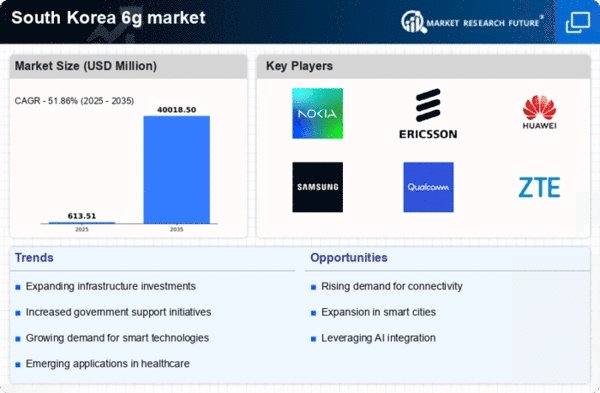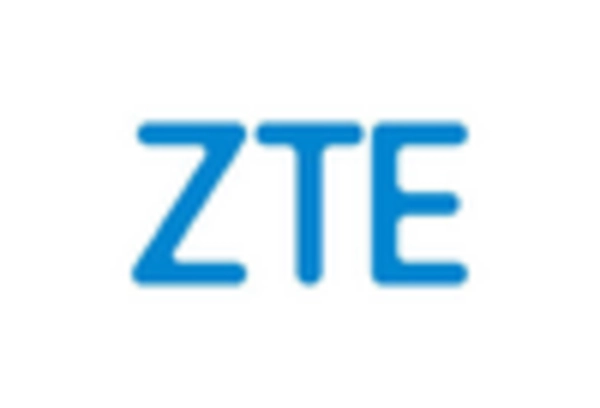Emergence of New Business Models
The 6g market is likely to witness the emergence of innovative business models driven by advancements in technology and changing consumer behaviors. As connectivity becomes ubiquitous, companies may explore subscription-based services, pay-per-use models, and data monetization strategies. This shift could lead to the creation of new revenue streams for telecommunications providers and technology firms. In South Korea, where digital services are rapidly evolving, businesses are expected to leverage 6g capabilities to offer enhanced services such as real-time analytics and personalized content delivery. The adaptability of these new business models may significantly influence the competitive landscape of the 6g market, fostering a dynamic environment for growth and innovation.
Increased Focus on Cybersecurity
As the 6g market evolves, the emphasis on cybersecurity is becoming increasingly critical. With the anticipated rise in connected devices and data traffic, the potential for cyber threats escalates, prompting stakeholders to prioritize security measures. South Korea's commitment to developing robust cybersecurity frameworks is likely to influence the 6g market positively. Investments in advanced encryption technologies and secure network protocols are expected to enhance user trust and confidence in 6g services. Furthermore, collaboration between government agencies and private sector entities to establish cybersecurity standards may create a safer digital environment, thereby encouraging adoption and growth within the 6g market.
Government Initiatives and Support
The South Korean government plays a crucial role in the development of the 6g market through various initiatives and support programs. With a commitment to becoming a leader in next-generation telecommunications, the government has allocated substantial funding, estimated at $200 million, for research and development in 6g technologies. This financial backing is aimed at fostering innovation and collaboration among universities, research institutions, and private companies. Additionally, regulatory frameworks are being established to facilitate the deployment of 6g infrastructure, which is expected to create a conducive environment for market growth. Such proactive measures indicate a strong governmental commitment to advancing the 6g market, positioning South Korea as a pioneer in the global telecommunications landscape.
Rising Demand for High-Speed Connectivity
The increasing demand for high-speed connectivity in South Korea is a significant driver for the 6g market. As digital transformation accelerates across various sectors, including healthcare, education, and entertainment, the need for faster and more reliable internet services becomes paramount. The proliferation of IoT devices, projected to reach 50 billion by 2030, further amplifies this demand, necessitating advanced network capabilities. Consumers and businesses alike are seeking seamless connectivity to support applications such as augmented reality, virtual reality, and smart city initiatives. This growing appetite for enhanced digital experiences is likely to propel investments in the 6g market, as stakeholders strive to meet the evolving needs of users.
Technological Advancements in Telecommunications
The 6g market in South Korea is poised for growth due to rapid technological advancements in telecommunications. Innovations in antenna technology, signal processing, and network architecture are expected to enhance connectivity and data transfer rates. For instance, the introduction of terahertz frequency bands could potentially increase data transmission speeds to 1 Tbps, significantly surpassing current capabilities. This technological evolution is likely to attract investments from both domestic and international players, further stimulating the 6g market. As South Korea continues to lead in telecommunications, the integration of artificial intelligence and machine learning into network management may also optimize performance and reliability, thereby enhancing user experience and driving market expansion.
















